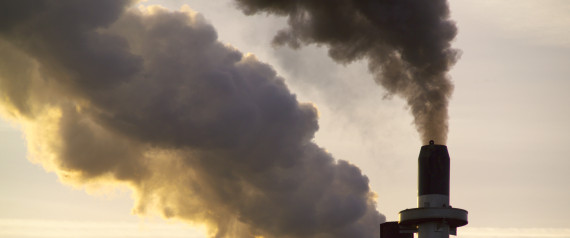
LONDON -- LONDON (AP) — What many commuters choking on smog have long suspected has finally been scientifically validated: air pollution causes lung cancer.
The International Agency for Research on Cancer declared on Thursday that air pollution is a carcinogen, alongside known dangers such as asbestos, tobacco and ultraviolet radiation. The decision came after a consultation by an expert panel organized by IARC, the cancer agency of the World Health Organization, which is based in Lyon, France.
"We consider this to be the most important environmental carcinogen, more so than passive smoking," said Kurt Straif, head of the IARC department that evaluates cancer-causing substances.
IARC had previously deemed some of the components in air pollution such as diesel fumes to be carcinogens, but this is the first time it has classified air pollution in its entirety as cancer causing.
The risk to the individual is low, but Straif said the main sources of pollution are widespread, including transportation, power plants, and industrial and agricultural emissions.
Air pollution is a complex mixture that includes gases and particulate matter, and IARC said one of its primary risks is the fine particles that can be deposited deep in the lungs of people.
"These are difficult things for the individual to avoid," he said, observing the worrying dark clouds from nearby factories that he could see from his office window in Lyon. "When I walk on a street where there's heavy pollution from diesel exhaust, I try to go a bit further away," he said. "So that's something you can do."
The fact that nearly everyone on the planet is exposed to outdoor pollution could prompt governments and other agencies to adopt stricter controls on spewing fumes. Straif noted that WHO and the European Commission are reviewing their recommended limits on air pollution.
Previously, pollution had been found to boost the chances of heart and respiratory diseases.
The expert panel's classification was made after scientists analyzed more than 1,000 studies worldwide and concluded there was enough evidence that exposure to outdoor air pollution causes lung cancer.
In 2010, IARC said there were more than 220,000 lung cancer deaths worldwide connected to air pollution. The agency also noted a link with a slightly higher risk of bladder cancer.
Straif said there were dramatic differences in air quality between cities around the world and that the most polluted metropolises were in China and India, where people frequently don masks on streets to protect themselves.
"This is something governments and environmental agencies need to take care of," Straif said. "People can certainly contribute by doing things like not driving a big diesel car, but this needs much wider policies by national and international authorities."
Other experts emphasized the cancer risk from pollution for the average person was very low — but virtually unavoidable.
"You can choose not to drink or not to smoke, but you can't control whether or not you're exposed to air pollution," said Francesca Dominici, a professor of biostatics at Harvard University's School of Public Health. "You can't just decide not to breathe," she said. Dominici was not connected to the IARC expert panel.
A person's risk for cancer depends on numerous variables, including genetics, exposure to dangerous substances and lifestyle choices regarding issues such as drinking alcohol, smoking and exercising.
Dominici said scientists are still trying to figure out which bits of pollution are the most lethal and called for a more targeted approach.
"The level of ambient pollution in the U.S. is much, much lower than it used to be, but we still find evidence of cancer and birth defects," she said. "The question is: How are we going to clean the air even further?"
____
Online:
http://www.iarc.fr/en/publications/books/sp161/index.php
Also on HuffPost:
References
- ^ Send us a tip (www.huffingtonpost.com)
- ^ Send us a photo or video (www.huffingtonpost.com)
- ^ Suggest a correction (www.huffingtonpost.com)

0 comments:
Post a Comment